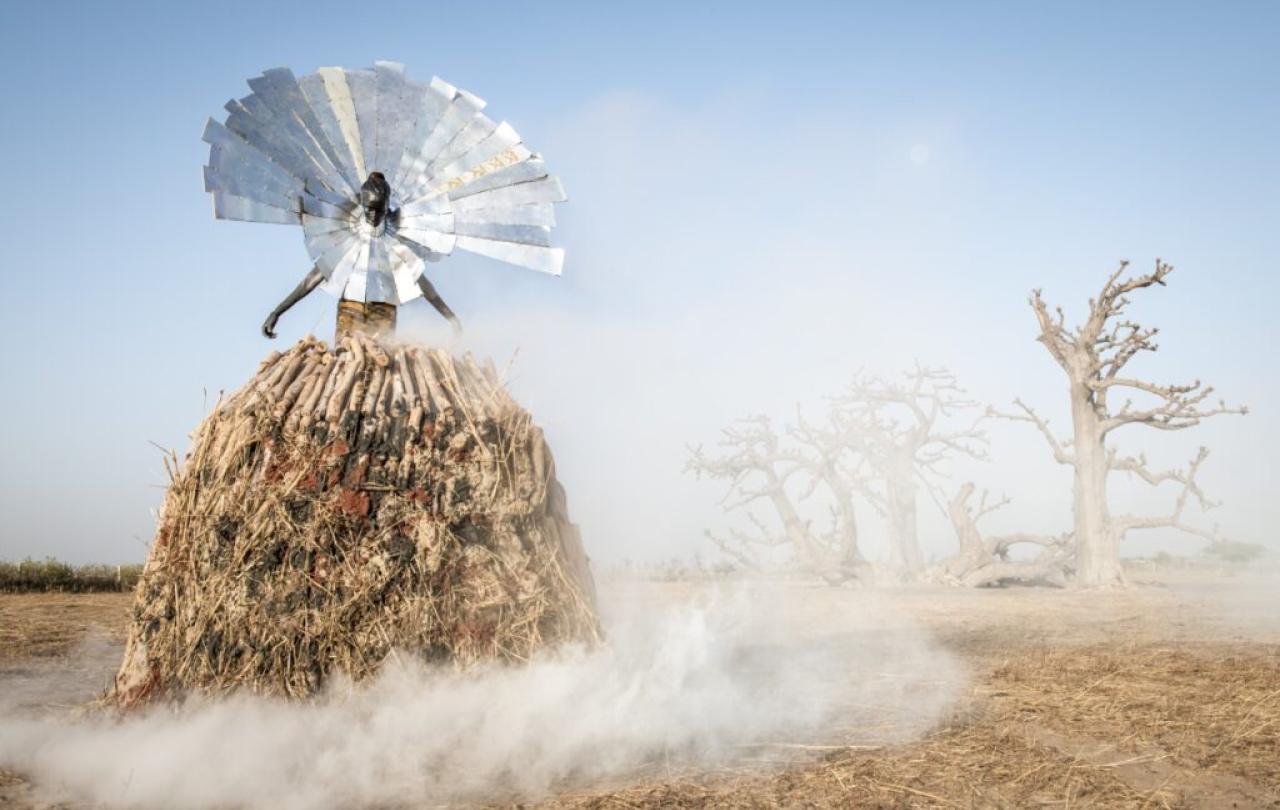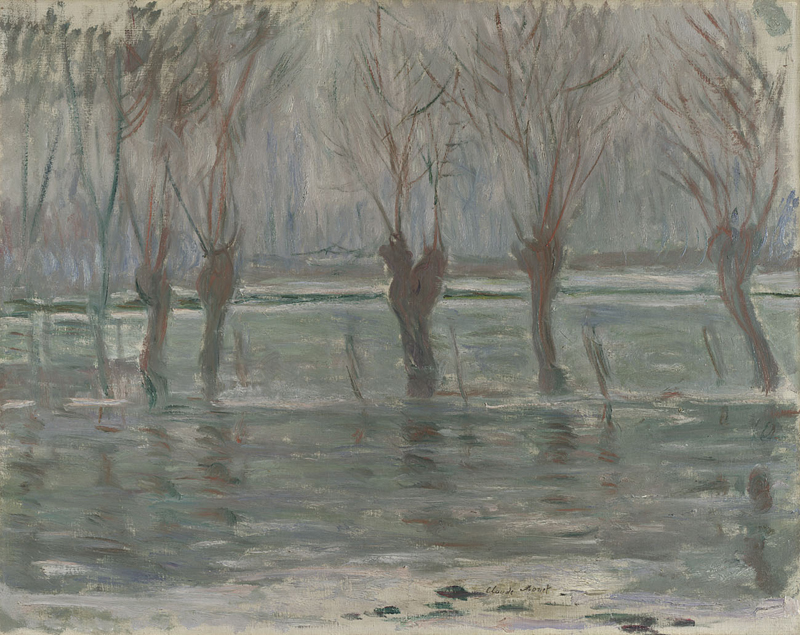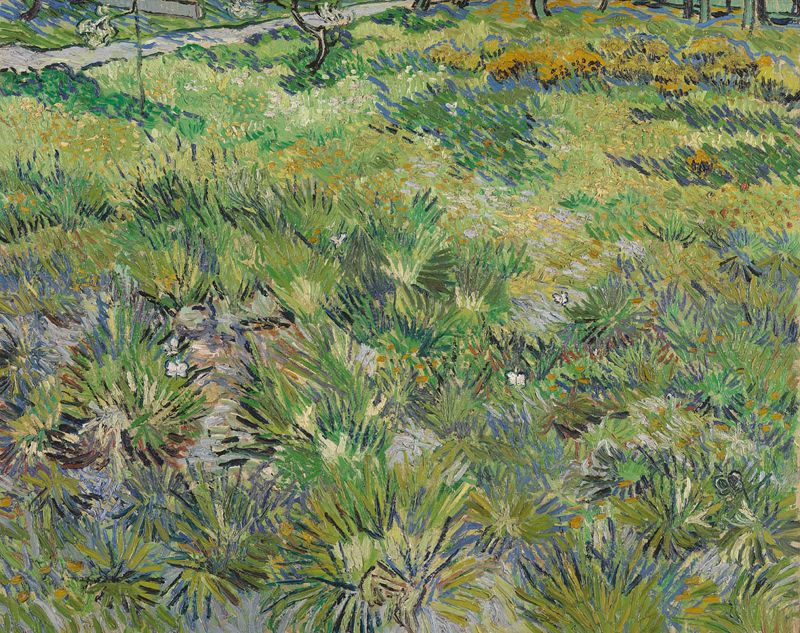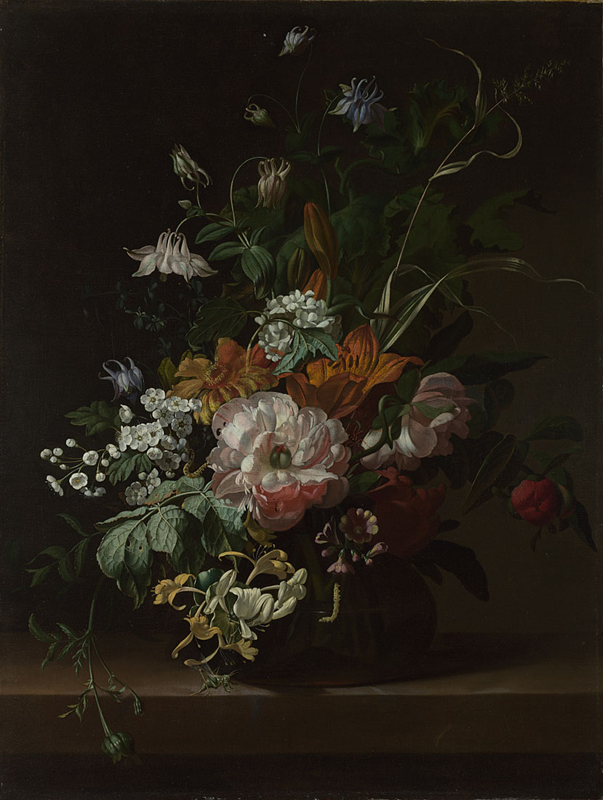
Life Is More Important Than Art claimed the recent summer exhibition at Whitechapel Gallery. Taking inspiration from African-American writer and novelist James Baldwin, who proposed that life is more important than art which is why art is important, the exhibition explored the intersection of art and everyday life and the role of contemporary art institutions in a time of uncertainty and change. As Whitechapel Gallery Director Gilane Tawadros has explained, Baldwin “meant that we have the bare necessities of life - a roof over our head, food to eat and so on - but life should be more than the bare necessities” and that’s “where art comes in.”
The Whitechapel Gallery has not been alone at this time in exploring the place of art in relation to big issues and contemporary challenges. Recent exhibitions at the Gagosian, Hayward and Tate Galleries have each used specific philosophical theories to explore the legacy of colonialism and posit creative ways forward in the future, while Dear Earth, also at the Hayward Gallery, explored themes of care, hope, and emotional and spiritual connection with our environment.
Their approach understands art as alive and capable of engaging people with the fundamental questions of life.
Norwich’s Sainsbury Centre has perhaps been most systematic and ambitious in pursuing this particular trend in exhibition curation. In September, the Centre launched the first of its new Big Question seasons exploring the theme of Planet for our Future: How do we adapt to a Transforming World? The Centre is setting the exploration of big issues at the very heart of their exhibition programming, seeking to empower art to address fundamental societal challenges. Their approach understands art as alive and capable of engaging people with the fundamental questions of life and will see artworks from all over the world travelling to the Centre to pose urgent, global questions to visitors and help them find the answers. Future seasons will ask: What is truth? (Spring 2024); Why do people take drugs? (Autumn 2024); How do we resuscitate a dying sea? (Spring 2025); Can humans stop killing each other? (Autumn 2025); and What is the meaning of life? (Spring 2026).
Planet for our Future has an interconnected programme of exhibitions, interventions, collection displays, an artist residency, museum-late, artist-led workshops, and special projects, taking place across the whole art landscape and out into neighbouring communities. It aims to empower art to generate a living dialogue with visitors, inviting them to consider the global challenges of pollution, environmental destruction, and climate change. The wider aim is to mobilise the Sainsbury Centre as a space of hope through the transformative power of art: a space where we can imagine better futures in which collective human behaviour mitigates the effects of climate change.
Given the extent to which the exhibitions mentioned above include themes of spirituality, it would seem that Greenberg and his ilk were on the wrong side of history in this respect too.
These approaches represent a remarkable success for the arguments that artist and academic Suzi Gablik made in the 1980’s and 1990’s in books such as Has Modernism Failed? and The Reenchantment of Art. Gablik contrasted ‘Art for Art’s Sake’ with ‘Art for Society’s Sake’ whilst arguing for the latter, a prescient choice given the current approaches of curators. At the time, Gablik was challenging the received wisdom of art critics such as Clement Greenberg who “rejected the notion that there is any higher purpose to art, or any ‘spiritual’ point to its production.” Given the extent to which the exhibitions mentioned above include themes of spirituality, it would seem that Greenberg and his ilk were on the wrong side of history in this respect too.
I recently took part in The Art of Creation, a conference held at King's College London and organised through the National Gallery’s Interfaith Sacred Art Forum, which brought together speakers from a wide range of disciplines to explore the intersection of art, theology, and ecology. The conference was part of a year-long series of reflections on three paintings from the National Gallery’s Collection – Claude Monet’s Flood Waters, Vincent Van Gogh’s Long Grass with Butterflies, and Rachel Ruysch’s Flowers in a Vase - which raise ecological concerns. The papers exploring aspects of these paintings drew on an eclectic, yet fascinating, range of sources including: Maori beliefs; the Jewish and Christian scriptures; South African poetry; the Nouvelle Theologie; the theology of resonance; the writings of Gerard Manley Hopkins and Marilynne Robinson; and a range of related artworks including the work of Barnett Newman and Regan O’Callaghan. The conference initiated a dialogue regarding ways in which art and faith together can help us make reparative connections in a fragile world and its approaches suggest ways of engaging with the big issues that artists and curators are exploring.
This relationship with creation mirrors that of artists (in the broadest sense), who are both sub-creators and co-creators.
In my paper, which brought verses from Chapter 38 of the Book of Job into dialogue with the three paintings, I argued that God is calling humanity into a relationship with creation in which we respond with humility, awe and wonder to its abundance and diversity, which always exceeds our grasp however much knowledge of it we gain. I suggested, too, that this relationship with creation mirrors that of artists (in the broadest sense), who are both sub-creators and co-creators. As sub-creators, artists recognise that we cannot create from nothing (‘ex nihilo’) and are, therefore, always in a humble, interdependent state where we are as aware of boundaries, edges and frames as we are of openings, doorways and possibilities. As co-creators, we are called to work with the grain or tend the essence of creation and its creatures, as in the approach of sculptors who seek to be true to the materials they use or in the ideas Gerard Manley Hopkins developed regarding inscape and instress.
This section of the poem concerning Job begins by initiating a dialogue as God challenges Job to stand up and answer the questions he poses about the created order; questions such as, do you know the measurements of the earth or the sources for oceans, light, snow and rain? At the time of writing Job, and the writer of this poem, could not answer those questions, so are left simply in a state of awe and wonder. We, however, are, often, able to answer such questions and are, as a result, able to discuss the meaning of such knowledge while also retaining an awareness of the vast dimensions of the abundance and diversity of creation within which our expanded and expanding knowledge remains infinitesimal compared with the whole. Interestingly, the novelist Marilynne Robinson suggests in an essay on ‘Psalm 8’ that,
“A question is more spacious than a statement, [being] far better suited to expressing wonder”.
Artists have regularly worked with just such a balance through an awareness of being sub-creators and co-creators with God. Artists, including those considered by The Art of Creation conference, have often had a different relationship with the divine and with creation. Whether figurative artists working from nature, as are the three principal artists considered by The Art of Creation conference, or symbolic artists creating secondary worlds, artists are often aware of themselves as co-creators or, in the words of J.R.R. Tolkien, sub-creators. We are sub-creators or co-creators when we recognise that we create from creation, not ex nihilo, which involves humility in order that we tend, rather than dominate, creation.
Claude Monet’s Flood Waters, Vincent Van Gogh’s Long Grass with Butterflies, and Rachel Ruysch’s Flowers in a Vase.



Van Gogh paints an expanse of grass extending beyond his canvas in Long Grass with Butterflies, while Rachel Ruysch’s Flowers in a Vase brings flowers that bloom at different times of year together in one image. Awareness of edges, frames, borders, boundaries and other constraints in regard to their canvasses are used by these artists as an element in contrasting the limits of human understanding and the fecundity of nature. Even when artificially exceeding these boundaries, as Ruysch does, this can be in order to highlight our inability to do so in our primary world.
Co-creation is a concept which takes us further in that it involves human creation which is in line with the essence of God’s creation. Another creation story, that of Adam naming the animals, this time from the Book of Genesis, is key to understanding this aspect of creativity. Names in ancient times described the essence of the creature or object so named. That is what is described in this story. In our naming of the animals together with God, we look for the essence of each creature and then name that essence. This suggests a path to exploring possibilities within creation in partnership with God by creating the new in harmony with the essence of the actual.
This process of paying attention to come to know the essence of a thing by imaginatively exploring its various possibilities in order to realise its distinctive essence is what the poet Gerard Manley Hopkins called instress. He also called the essence that we identify the inscape. Ultimately, he suggests, “the instress of inscape leads one to Christ, for the individual identity of any object is the stamp of divine creation on it.” He wrote more about this understanding in the poem ‘Kingfishers catch fire’:
Each mortal thing does one thing and the same:
Deals out that being indoors each one dwells;
Selves — goes itself; myself it speaks and spells,
Crying Whát I dó is me: for that I came.
I say móre: the just man justices;
Keeps grace: thát keeps all his goings graces;
Acts in God's eye what in God's eye he is —
Chríst — for Christ plays in ten thousand places,
Lovely in limbs, and lovely in eyes not his
To the Father through the features of men's faces.
In an essay entitled ‘Wonders Never Cease: Integrity & the Modern Intellectual Condition’, Marilynne Robinson suggests that a theistic vision of the world, like that of Hopkins, “is freer to see the world whole, as it is in itself, so to speak” and she quotes Hopkins who says, “The world is full of the grandeur of God. / It will flame out, like shining from shook foil”. She continues: “Within this great given, that Being is an astonishment, any aspect of being can be approached with an expectation of discovering wondrous things. The slime that comes up from the depths of the sea in fishermen’s nets is a ruined universe of bioluminescence. Microorganisms live in clouds, air moves in rivers, butterflies navigate the earth’s magnetic field. The matter cosmologists call “dark,” which makes up most of the mass of the universe, seems to be non-atomic. Wonders never cease.” As a result, in her essay on ‘Psalm 8’ she gives this credo,
“I have spent my life watching not to see beyond the world, [but] merely to see, great mystery, what is plainly before my eyes … [as] With all due respect to heaven, the scene of miracle is here, among us.”
The approach that Robinson and Hopkins advocate as artists is one that could assist us more generally in relation to the climate emergency, while the sense of wonder found in their work is replicated in the images of Monet, Van Gogh and Ruysch and is, I suggest, what God looks for from us in the questions that are posed in the Book of Job. By responding to a wide range of ideas and sources, The Art of Creation conference demonstrated a similar balance to awe and knowledge, recognising that this attitude and approach opens up reflection on the abundance of the world and cultures that God created and also holds out the possibility that new inspirations will be sparked from the interplay of ideas that ensues. These ways of relating art, creation and faith suggest one approach to engaging with the big issues that artists and curators are exploring and which faith communities, including the Church, have explored throughout the history of humanity.





